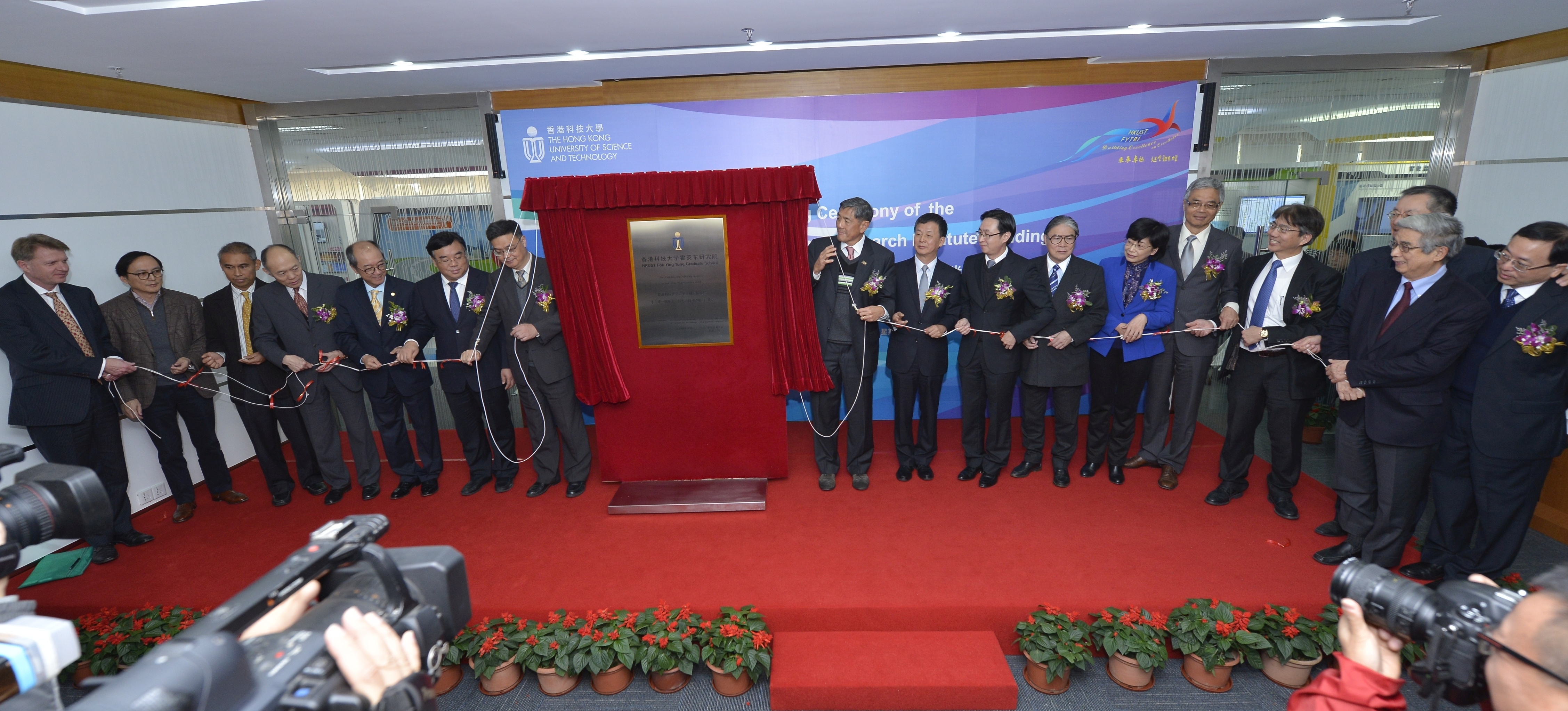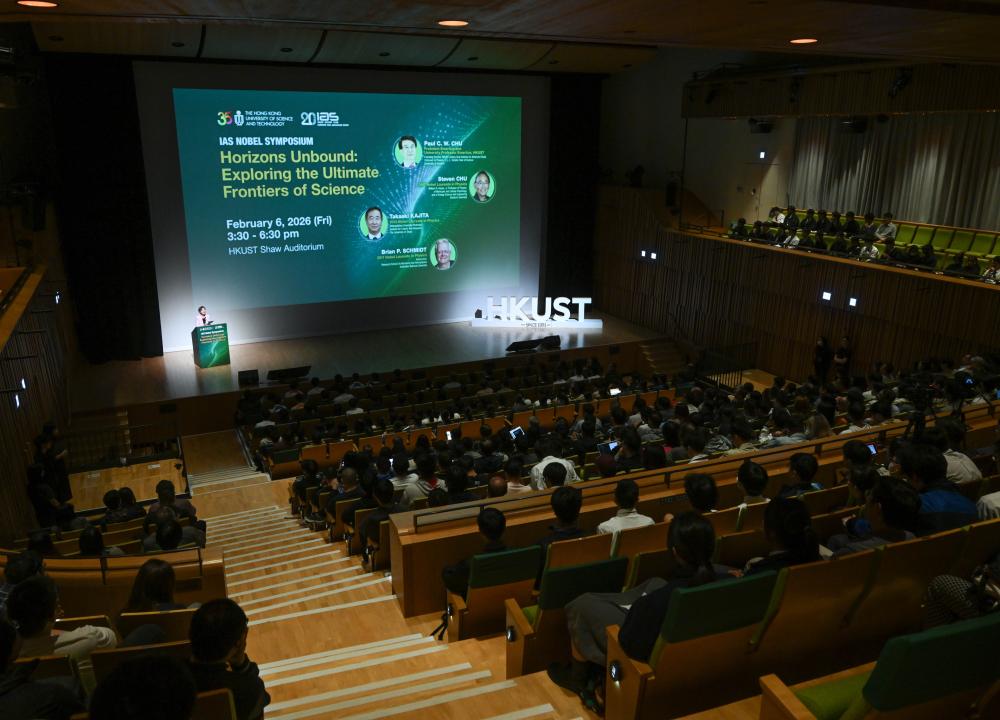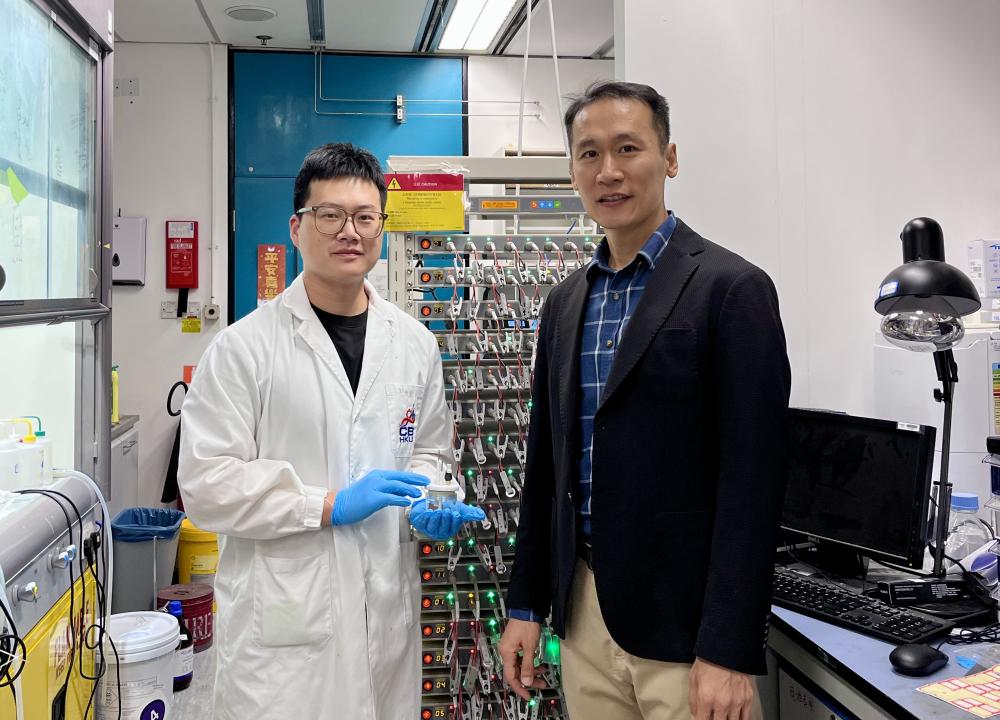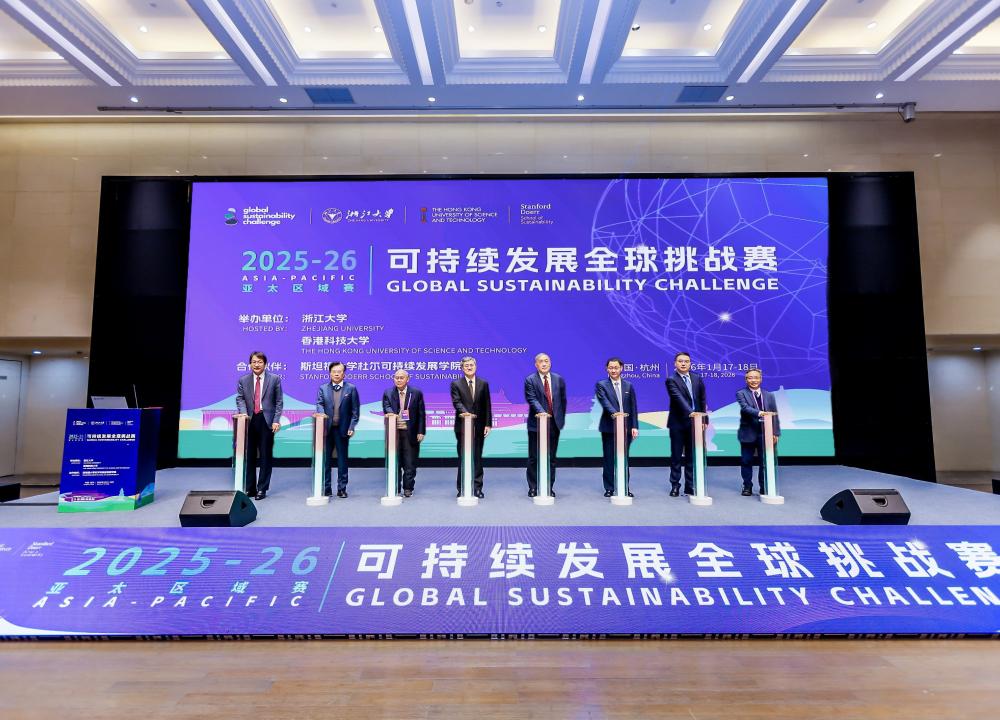HKUST Holds Opening Ceremony for Fok Ying Tung Research Institute Building
The Hong Kong University of Science and Technology (HKUST) held an opening ceremony for the Fok Ying Tung Research Institute Building at the Nansha IT Park in Guangzhou today. Agreements on setting up the National Supercomputer Center in Nansha and on education, research and industry collaboration projects were signed at the ceremony with a view to fostering science and research collaboration as well as knowledge transfer between Hong Kong and the Mainland.
Officiating guests at the opening ceremony included Mr Ma Linying, Director of Office of Hong Kong, Macau and Taiwan Affairs, Ministry of Science and Technology, Prof Li Lu, Director of the Department of Educational, Scientific and Technological Affairs, Liaison Office of the Central People’s Government in the HKSAR, Mr Eric Ma, Under Secretary for Development of the HKSAR Government, Mr Ding Hongdou, Member of Standing Committee of Guangzhou Municipal Communist Party and Party Secretary of Nansha District, and other senior government officials, as well as Mr Timothy Fok, Chairman of Fok Ying Tung Group, and Mr Ian Fok, Chairman of the Board of Directors of the Nansha IT Park. From HKUST, Acting Council Chairman Mr Martin Y Tang, President Prof Tony F Chan, Executive Vice-President and Provost Prof Wei Shyy and other senior management also attended the ceremony.
HKUST signed cooperation framework agreements with the Guangzhou Municipal Government and the Nansha Development Zone respectively this year. With Fok Ying Tung Research Institute as the platform, the agreements aim to enhance the cooperation between Hong Kong and Guangdong on knowledge transfer, bring in successful experience from around the world and create an inspiring environment for scientific innovation and commercialization. At the ceremony, HKUST signed an agreement on setting up the National Supercomputer Center in Nansha to further strengthen the development of the platform for technology transfer between Hong Kong and the Mainland. Moreover, various agreements were also signed between the Institute and its partners, including the Ministry of Public Security, Guangdong Environmental Monitoring Centre, China Telecom, SINOPEC Beijing Research Institute of Chemical Industry, East China University of Science and Technology, Guangdong University of Science and Technology, NXP Semiconductors and Shandong Qiquan Group, among others, to further enhance education, research and industry collaboration with the Mainland.
President Prof Tony F Chan said the University is committed to contributing to the society by bringing education, research and industry together and translating scientific research findings into real-life applications. HKUST is honored to be able to play a part in fostering the cooperation between Hong Kong and the Pearl River Delta region in areas of science and technology innovation, knowledge transfer and talents training in particular. HKUST has nurtured numerous innovative enterprises, such as APT Electronics, a LED enterprise in Nansha, among others. The Institute will continue to nurture more innovative enterprises and science and research talents in future.
Prof Lionel Ni, Dean of Fok Ying Tung Research Institute, said the Institute would not have progressed so well without the generous support from governments at various levels and our partners. Serving as an important base of HKUST on knowledge transfer in Mainland China, the Institute will continue to make the most of the University in areas of research, education and talents, among others, and to bring in more new technology and talents with a view to enhancing technology innovation and industry collaboration of Hong Kong, the Mainland and other areas.
Fok Ying Tung Research Institute, located at the Nansha IT Park, is an important platform of HKUST on the Mainland. The Institute is committed to fostering technology innovation and advancement, knowledge transfer and industry collaboration between Hong Kong and Guangdong, as well as providing quality research and postgraduate education. With a generous donation from the Fok Ying Tung Foundation, the new building has a total floor area of 36,000 square meters, complete with advanced laboratories and facilities for research and education. The Institute focuses its research and education in areas including internet of things, advanced engineering materials, advanced manufacturing and automation, and environment and sustainable development.
For media enquiries, please contact:













